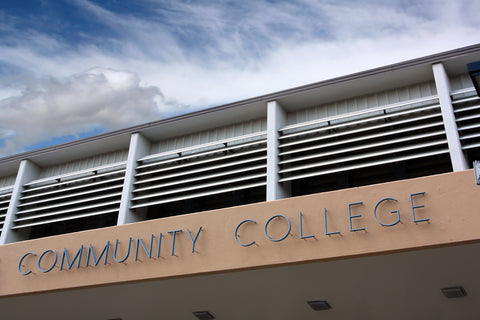For many college bound students, the only thing more stressful than getting into the schools you want is finding the money to pay for the education. It’s the hope of both students and parents to receive enough scholarships and a generous financial aid package from schools to offset the ever-rising cost of a college degree.
Thankfully, there are many avenues to use to make your search for scholarships and grants easier. It is important to remember to start your search early and do not procrastinate. Millions of other students have access to the same information and if you put off applying for available financial aid, you could miss your shot long before the due date.
Scholarships, Grants, and Loans
Before starting your search, it’s important to understand the types of funding available to use for college.
Scholarships and grants are the two types of financial aid awards which don’t require you to pay it back. Loans, however, require students to pay back the money borrowed, usually with a percentage of interest. Loans are the main contributor to the massive amount of debt a student acquires when pursing their degree. Government loans are the most common type students use to pay for college. Long after you’ve graduated from college, it is possible you will still be paying back loans you borrowed. When at all possible, avoid taking out loans you’re not sure you’ll be able to pay back in a reasonable amount of time.
Student loan debt can be a source of great stress on college students and graduates. Accumulating too much debt can prevent a person from acquiring credit, which could allow them to make large purchases in the future such a car or a home. Though a student loan may be unavoidable, the prospect of debt should never prevent you from pursing your college degree. Ultimately, a college degree can help you secure a better paying career than simply having a high school diploma, allowing you to pay down your debt quickly.
Finding the Money
Once you’ve learned the different types of funding available to you, the next step is diving into the vast number of resources available for finding scholarships and grants. Whilst everyone has their own favorite place to search, the following are the most common places to consider to get you started:
- Financial Aid Office of the College or University – Even after you’ve arrived at college, you can continue searching for scholarships, grants, and other forms of financial aid. Your future school may have specific resources not available through common methods of searching.
- High School College Prep Center or Guidance Counselor – Your high school career counselors and academic advisers are great sources of information when looking for scholarships and grants. Their jobs are to help students not only get into college but help them find ways to pay for it.
- S Department of Labor’s Scholarship Search Tool – Not only will the government provide loans to help you go to school, they can be a great resource for finding scholarships and grants. This is also useful if you’re a non-traditional student looking to go back to school or hoping to learn a new skill.
- School and Public Libraries – Beyond being a great source for most types of information, libraries should be one of the first places students and parents use when starting their search for scholarships. Libraries often have a section dedicated for all things relating to college or careers. Librarians are often more than happy to help if you’re feeling overwhelmed with the amount of resources available.
- Charitable Foundations – These organizations often set aside money for students aspiring to attain degrees in specific fields or if a student meets certain criteria in relation to the foundation.
- Religious Organizations – Much like charitable foundations, religious organizations, such as a local church, may have scholarships specifically for their parishioners or for those with a history of participating in faith-based events.
- Community Organizations – Neighborhood associations or homeowner’s associations may offer a scholarship to help students living in their communities.
- Ethnicity-Based Organizations – Organizations working to promote the advancement of minorities often award several scholarships to help encourage young people to attend college.
- Employers and Businesses – Your job may also offer a scholarship award or have some sort of financial aid available if you’re looking to obtain a degree or certification which could help you advance your career.
There’s a Scholarship for Almost Everything
Not all scholarships are based on intellect. In fact, some scholarships can have criteria so ridiculously easy, one might think the organizations are giving the money away. For example, there are scholarships where the only requirement is being left-handed. Some organizations award scholarships if they wear clothing using their product, like the famous Duct Tape Scholarship. If you spend enough time researching scholarships, you’re bound to find a few like these which require very little effort or qualifications.
There are often more resources available than students and parents realize. The inability to pay for college should never be a reason to not pursue a degree when there are so many places willing to help pay for some of the costs.
Don’t scoff at small scholarships either. A $250 or $500 scholarship from a small organization can go a long way when paying for books or supplies, not to mention that many small scholarships really add up. Plus, the more scholarships you receive, the better your college applications will look if you’re still applying to potential schools.




Comments (0)
There are no comments for this article. Be the first one to leave a message!